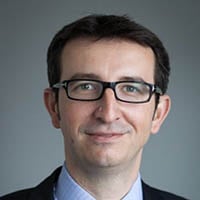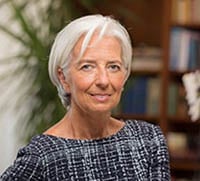More than a year and a half since the European Commission published its Action Plan on Financing Sustainable Growth, an EU official told a financial industry gathering in Washington, D.C., that he is not discouraged by the U.S. government's distancing itself from the Paris Agreement on climate change.
“Treasury wants to talk to me about sustainable investing. That is a very positive development,” Martin Spolc, head of the sustainable finance and fintech unit of the EC Directorate General for Financial Services, said during the Securities Industry and Financial Markets Association (SIFMA) annual meeting on November 19.
Spolc, who did not elaborate on that comment, was participating in a panel discussion two weeks after the Trump administration formally served notice of its withdrawal from the 2015 global climate agreement.
A week after the SIFMA panel, the United Nations Environment Program, in its 2019 Emissions Gap Report, said that greenhouse gas (GHG) emissions have risen at a 1.5% rate per year over the last decade, and “there is no sign” of them peaking in the next few years. “Every year of postponed peaking means that deeper and faster cuts will be required,” the report said. “By 2030, emissions would need to be 25% and 55% lower than in 2018 to put the world on the least-cost pathway to limiting global warming to below 2?C and 1.5°C, respectively.”

Europe has a “Green Deal” target of a 50% reduction in GHG emissions by 2030 and climate-neutrality by 2050. Spolc said there is a “yearly investment gap” of €175 billion to €290 billion from both governments and the private sector to meet those goals.
Investment and Innovation
Christine Lagarde, in her first major policy address as European Central Bank president, on November 22 in Frankfurt, stressed the continent's need for investment and innovation - on climate initiatives included - amid structural shifts “from external demand to domestic demand, from investment to consumption and from manufacturing to services.”
“In parallel,” Lagarde said, “world trade is being reordered as new technologies disrupt conventional supply chains and workplace organization, and as potential new risks emerge from climate change.”
Lagarde added, “While investment needs are of course country-specific, there is today a cross-cutting case for investment in a common future that is more productive, more digital and greener.” And she said that completion of “the digital single market, the capital markets union and the single market in services can provide the impetus Europe needs to launch new and innovative firms and to spread new technologies faster around the union” - closing the gap with the U.S. in those regards.
“Mainstreaming Sustainability”
Spolc of the European Commission reviewed the main outline of the sustainable-finance action plan: reorienting capital growth towards sustainable investments; “mainstreaming sustainability in risk management”; and fostering transparency in sustainability disclosures and long-termism in governance.
On risk management, the EC sounded the alarm in the March 2018 action plan:
“Environmental and climate risks are currently not always adequately taken into account by the financial sector. The increase in weather-related natural disasters means that insurance companies need to prepare for higher costs. Banks will also be exposed to greater losses due to the lower profitability of companies most exposed to climate change or highly dependent on dwindling natural resources.

“Between 2000 and 2016, annual weather-related disasters worldwide rose by 46%, and between 2007 and 2016, economic losses from extreme weather worldwide rose by 86%. This is a worrying trend, since close to 50% of the exposure of euro-area banks to risk is directly or indirectly linked to risks stemming from climate change.”
“Mainstreaming” risk principles amounts to better integrating sustainability in ratings and market research, clarifying the duties of institutional investors and asset managers, and incorporating sustainability in prudential requirements, Spolc pointed out.
He said the commission is aiming to “collect evidence of undue short-term pressures” on corporations and “consider steps for promoting corporate governance that is more conducive to sustainable investments.”
Standards and Metrics
A Technical Expert Group (TEG) on Sustainable Finance was established in June 2018 to assist with implementation of:
- Criteria for technical screening of environmentally sustainable economic activities as defined by an EU taxonomy.
- A voluntary green bond standard.
- Minimum standards for climate benchmark methodologies and environmental, social and governance (ESG) disclosures of benchmarks.
- Metrics for improved corporatedisclosure of climate-related information.
A June 2019 update to the commission's climate reporting guidelines was based on proposals from the TEG and included integration with recommendations of the Task Force on Climate-Related Financial Disclosures.
The work on corporate disclosures revolved around two perspectives of “materiality,” according to Spolc's presentation: financial (“to the extent necessary for an understanding of the company's development, performance and position”); and environmental and social (“impact of its activities”).
Also speaking during the SIFMA session, Antonia Perry, vice president of global distribution compliance, Manulife Investment Management (US), said it is important for financial regulators around the globe to harmonize sustainability regulations, in order to discourage firms from engaging in regulatory arbitrage.
Elisabeth Ottawa, deputy head of public policy, Schroders, said, “We don't have the luxury of trial and error [on sustainability]. It's important we get this right from the outset.”